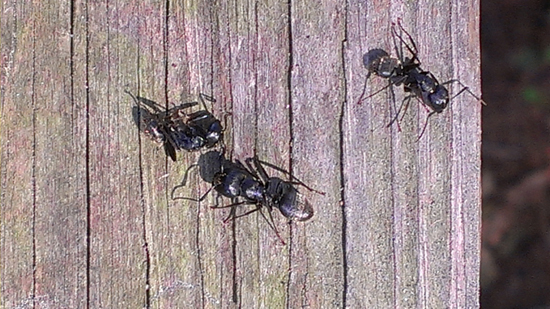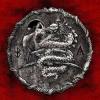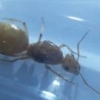I observed something that I was surprised at that happened yesterday. I have lots of black ants roaming on my back deck. Usually they are just coming and going in a trail. I observed on the deck rail about 3:00 pm 1 dead ant and two live ants.
After a brief rain shower, they were still there seemingly guarding the dead ant. They were touching it with their antennae's (proper term?). When I moved my finger towards the guarding ants they went into action charging my finger. same if I used a piece of pine straw. But was really interesting they stayed there until about 9:00 pm. Later around 11:00 pm I notice the dead ant was gone and the two live ants were gone but a big wood cockroach was at that same spot.
Hmmm, did the roach eat the dead ant?
But the real question is do they guard and or mourn their dead? I always thought ants were more just robot like type of insects. Apparently I was wrong to think that.
I know nothing about ants, but think they are neat, especially these big black ones. A few get in the house from time to time and I just let them walk on a piece of paper and take them out. We have some very tiny micro black ants that are not even as big as the leg of these big black ants.
Thanks for any help on this observation.



















